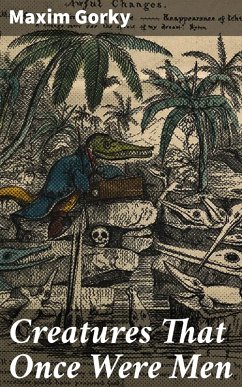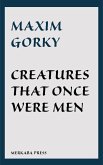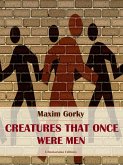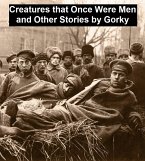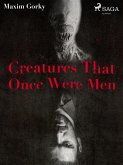Maxim Gorky'Äôs "Creatures That Once Were Men" is a poignant exploration of human depravity and social injustice, employing a stark yet evocative literary style that underscores the bleak realities of life in early 20th-century Russia. Gorky's use of vivid imagery and poignant characterizations illuminates the struggles of marginalized individuals, presenting their plight against the backdrop of a society characterized by exploitation and despair. The narrative, infused with naturalism, offers a searing critique of the dehumanizing effects of poverty and the prison-like conditions of modern urban existence. Maxim Gorky, born into a life of hardship, rose from humble beginnings to become a prominent figure in Russian literature, heavily influenced by his own experiences with destitution and societal inequity. His deep-seated empathy for the downtrodden and his advocacy for social reform shape the fabric of his writing. Gorky'Äôs encounters with both the working class and revolutionary movements instilled in him a sense of urgency to voice the struggles of the oppressed, making this work not just a literary endeavor but a moral call to action. Adventurous and probing, "Creatures That Once Were Men" is essential reading for anyone interested in the intersection of literature and social activism. Gorky'Äôs unflinching honesty and artistry invite readers to reflect on the human condition and the societal structures that shape it, making this book an invaluable addition to the canon of social realist literature.
Dieser Download kann aus rechtlichen Gründen nur mit Rechnungsadresse in A, B, BG, CY, CZ, D, DK, EW, E, FIN, F, GR, H, IRL, I, LT, L, LR, M, NL, PL, P, R, S, SLO, SK ausgeliefert werden.

